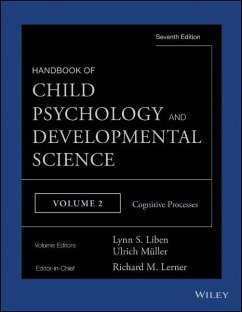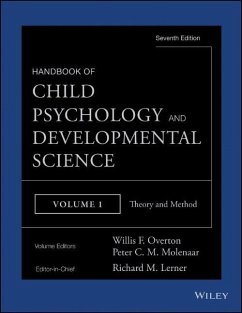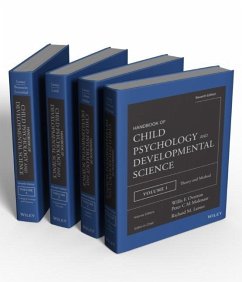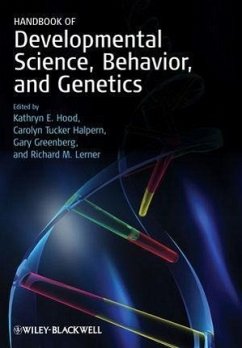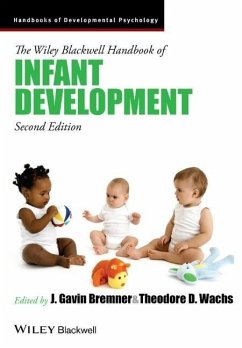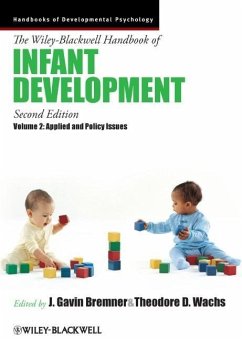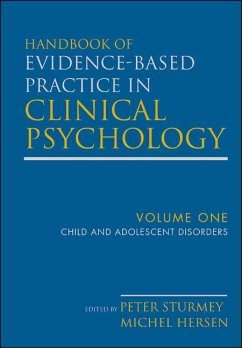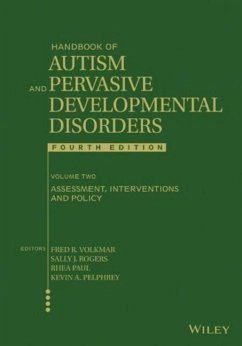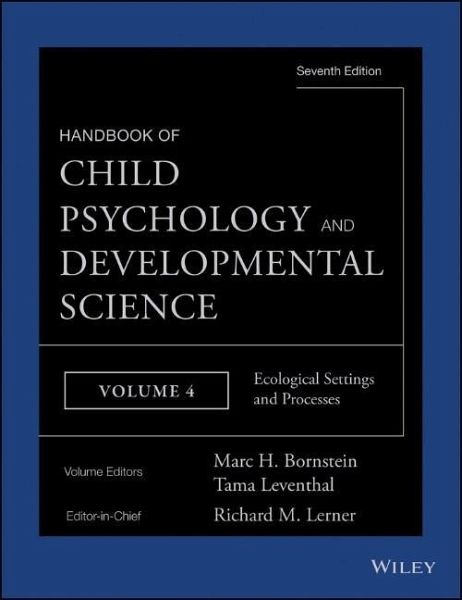
Handbook of Child Psychology and Developmental Science, Ecological Settings and Processes
Versandkostenfrei!
Versandfertig in über 4 Wochen
230,99 €
inkl. MwSt.
Weitere Ausgaben:

PAYBACK Punkte
115 °P sammeln!
The essential reference for human development theory, updated and reconceptualizedThe Handbook of Child Psychology and Developmental Science , a four-volume reference, is the field-defining work to which all others are compared. First published in 1946, and now in its Seventh Edition, the Handbook has long been considered the definitive guide to the field of developmental science.Volume 4: Ecological Settings and Processes in Developmental Systems is centrally concerned with the people, conditions, and events outside individuals that affect children and their development. To understand childre...
The essential reference for human development theory, updated and reconceptualized
The Handbook of Child Psychology and Developmental Science , a four-volume reference, is the field-defining work to which all others are compared. First published in 1946, and now in its Seventh Edition, the Handbook has long been considered the definitive guide to the field of developmental science.
Volume 4: Ecological Settings and Processes in Developmental Systems is centrally concerned with the people, conditions, and events outside individuals that affect children and their development. To understand children s development it is both necessary and desirable to embrace all of these social and physical contexts. Guided by the relational developmental systems metatheory, the chapters in the volume are ordered them in a manner that begins with the near proximal contexts in which children find themselves and moving through to distal contexts that influence children in equally compelling, if less immediately manifest, ways. The volume emphasizes that the child s environment is complex, multi-dimensional, and structurally organized into interlinked contexts; children actively contribute to their development; the child and the environment are inextricably linked, and contributions of both child and environment are essential to explain or understand development.
Understand the role of parents, other family members, peers, and other adults (teachers, coaches, mentors) in a child s development
Discover the key neighborhood/community and institutional settings of human development
Examine the role of activities, work, and media in child and adolescent development
Learn about the role of medicine, law, government, war and disaster, culture, and history in contributing to the processes of human development
The scholarship within this volume and, as well, across the four volumes of this edition, illustrate that developmental science is in the midst of a very exciting period. There is a paradigm shift that involves increasingly greater understanding of how to describe, explain, and optimize the course of human life for diverse individuals living within diverse contexts. This Handbook is the definitive reference for educators, policy-makers, researchers, students, and practitioners in human development, psychology, sociology, anthropology, and neuroscience.
The Handbook of Child Psychology and Developmental Science , a four-volume reference, is the field-defining work to which all others are compared. First published in 1946, and now in its Seventh Edition, the Handbook has long been considered the definitive guide to the field of developmental science.
Volume 4: Ecological Settings and Processes in Developmental Systems is centrally concerned with the people, conditions, and events outside individuals that affect children and their development. To understand children s development it is both necessary and desirable to embrace all of these social and physical contexts. Guided by the relational developmental systems metatheory, the chapters in the volume are ordered them in a manner that begins with the near proximal contexts in which children find themselves and moving through to distal contexts that influence children in equally compelling, if less immediately manifest, ways. The volume emphasizes that the child s environment is complex, multi-dimensional, and structurally organized into interlinked contexts; children actively contribute to their development; the child and the environment are inextricably linked, and contributions of both child and environment are essential to explain or understand development.
Understand the role of parents, other family members, peers, and other adults (teachers, coaches, mentors) in a child s development
Discover the key neighborhood/community and institutional settings of human development
Examine the role of activities, work, and media in child and adolescent development
Learn about the role of medicine, law, government, war and disaster, culture, and history in contributing to the processes of human development
The scholarship within this volume and, as well, across the four volumes of this edition, illustrate that developmental science is in the midst of a very exciting period. There is a paradigm shift that involves increasingly greater understanding of how to describe, explain, and optimize the course of human life for diverse individuals living within diverse contexts. This Handbook is the definitive reference for educators, policy-makers, researchers, students, and practitioners in human development, psychology, sociology, anthropology, and neuroscience.




